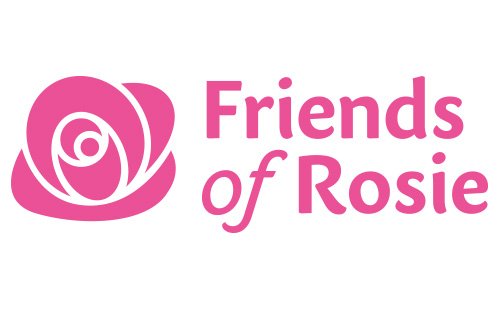Promising results for new blood test to detect Ewing Sarcoma
Over the past two years, Friends of Rosie has funded a £145,000 research project into the use of a revolutionary new blood test to diagnose Ewing Sarcoma, a rare type of bone cancer in children. Now complete, this pioneering new research has shown promising initial results which the research team are looking to take forward as part of a wider, European study.
This collaborative project took place at the Manchester Cancer Research Centre and The Christie Hospital in Manchester. The research team included specialist biomarker researchers, Professor Caroline Dive, and Dr Dominic Rothwell, with Ewing Sarcoma focussed clinician, Dr Martin McCabe.
Friends of Rosie joined forces with two other children’s charities to fund this vital research, The Bradley Lowery Foundation and Megan’s Rose of Hope. Like Friends of Rosie, both charities aim to improve the outcomes for children with cancer.


About Ewing Sarcoma
Ewing Sarcoma is a bone and soft tissue cancer. It affects around 70 children and young people each year in England. In about half of patients, the cancer progresses despite treatment or comes back after treatment. Very few people survive if this happens. Therefore, early identification of patients likely to relapse is a clinical need.
The survival rate of children and young people with Ewing Sarcoma has changed little in the last 40 years, despite multiple clinical trials. Major factors resulting in poor survival and lack of progress are largely due to early symptoms being non-specific, therefore tumours are frequently large and inoperable at the time of diagnosis. At present, in one in four patients, the disease has already spread to other parts of the body by the time it is detected using present methods.
Using a blood test to diagnose Ewing Sarcoma
This vital Friends of Rosie project researched the development of blood tests (also known as liquid biopsies) to show whether Ewing Sarcoma treatment is working or to detect the cancer early if it comes back.
Currently, patients rely on invasive, often painful, tumour biopsies which provide only limited samples and are difficult and expensive. A blood test could instead identify quickly whether treatment is working rather than spending months giving ineffective chemotherapy. It would also be a reliable and less invasive way to monitor for disease relapse and enable earlier intervention.
How does it work?
Detecting fragments of DNA coming from cancer cells, or cell-free DNA (cfDNA) in the blood has emerged as a promising liquid biopsy in some cancers, including Ewing Sarcoma.
All Ewing Sarcomas have a specific genetic abnormality called a fusion gene. This fusion gene is used by doctors to diagnose patients with Ewing Sarcoma. The fusion gene turns a normal cell into a cancerous Ewing Sarcoma cell by producing growth signals that tell the Ewing Sarcoma cells to grow out of control.
The signalling molecules are called RNA. Fusion gene RNA is detectable in the blood of patients with Ewing Sarcoma. This type of blood RNA is called ctRNA. ctRNA has potential technical advantages over cfDNA as it may be more abundant in the blood, and therefore may be more appropriate for large scale monitoring with standardized laboratory tests.
In this study, researchers aimed to develop a liquid biopsy ctRNA blood test for Ewing Sarcoma patients. Their specific objectives were to work out, firstly, which blood test tube would work best. Secondly, which type of ctRNA analysis would be most successful in comparing ctRNA and ctDNA to see which was more sensitive at picking up fusion gene copies in the blood.
The findings
Using blood from healthy donors, the team worked out that the best way to isolate ctRNA was using EDTA blood test tubes and a commercial kit called the QIAamp Circulating Nucleic Acid kit.
They also found that a new technology called, amplicon sequencing, was better at detecting ctRNA than the previously accepted best method (called RT-qPCR). Amplicon sequencing was able to detect fusion gene ctRNA molecules when they were only present at half the lowest concentration than RT-qPCR could detect.
Researchers are now using these tests on more than 58 blood samples from over 15 Ewing Sarcoma patients. This analysis aims to detect fusion cfRNA at baseline, during treatment of the patient and at relapse.
To date, they have analysed 23 samples from five patients and have detected fusion gene ctRNA in five samples from three of those patients. The remaining patient samples will be analysed for fusion gene ctRNA, followed by further tests of cfRNA and cfDNA.
Moving forward, the team aims to combine the RNA and DNA together to boost the sensitivity of liquid biopsy for EwS.




